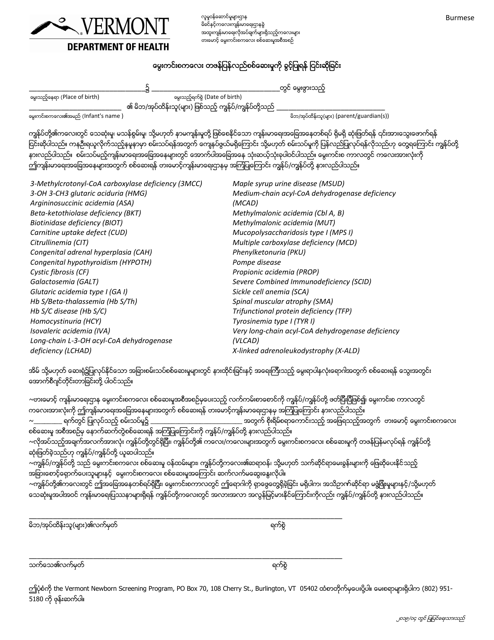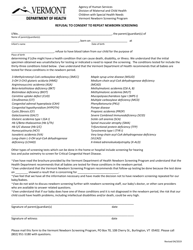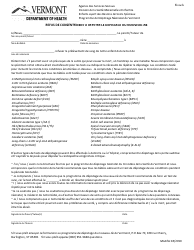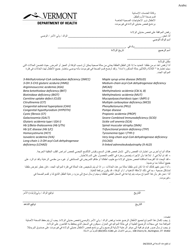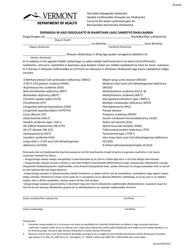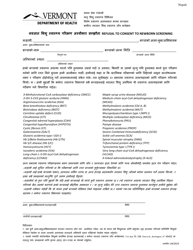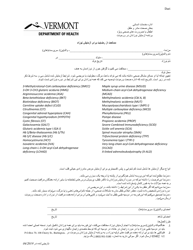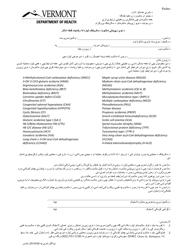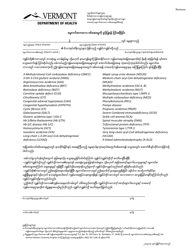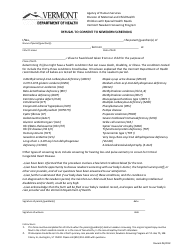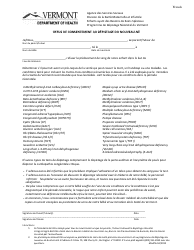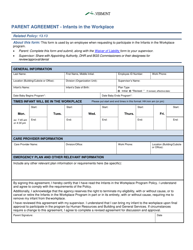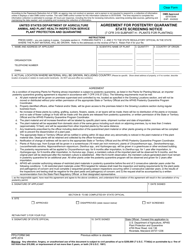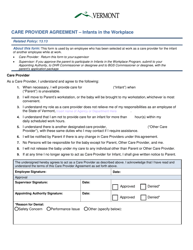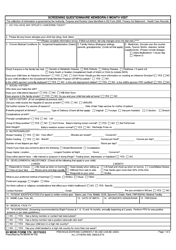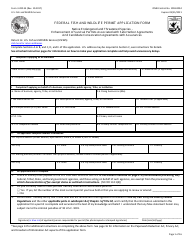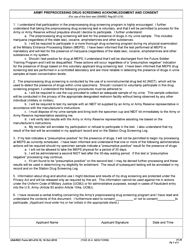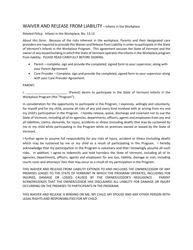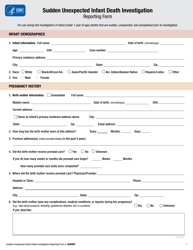Refusal to Consent to Repeat Newborn Screening - Vermont (Burmese)
This is a legal document that was released by the Vermont Department of Health - a government authority operating within Vermont.
The document is provided in Burmese.
FAQ
Q: What is newborn screening?
A: Newborn screening is a series of tests performed on a newborn baby to detect certain genetic, metabolic, and congenital disorders.
Q: Why is newborn screening important?
A: Newborn screening is important because it can help identify and treat certain conditions early in a baby's life, improving their health outcomes.
Q: What happens if a parent refuses to consent to repeat newborn screening in Vermont?
A: If a parent refuses to consent to repeat newborn screening in Vermont, it may be considered a violation of the law and can have legal consequences.
Q: What is the purpose of repeating newborn screening?
A: Repeating newborn screening can help ensure accurate results and detect any missed conditions that may not have been detected in the initial screening.
Q: Can a parent refuse to consent to repeat newborn screening?
A: In Vermont, a parent has the right to refuse to consent to repeat newborn screening, but it is important to understand the potential consequences of this decision.
Form Details:
- Released on April 1, 2019;
- The latest edition currently provided by the Vermont Department of Health;
- Ready to use and print;
- Easy to customize;
- Compatible with most PDF-viewing applications;
Download a printable version of the form by clicking the link below or browse more documents and templates provided by the Vermont Department of Health.
